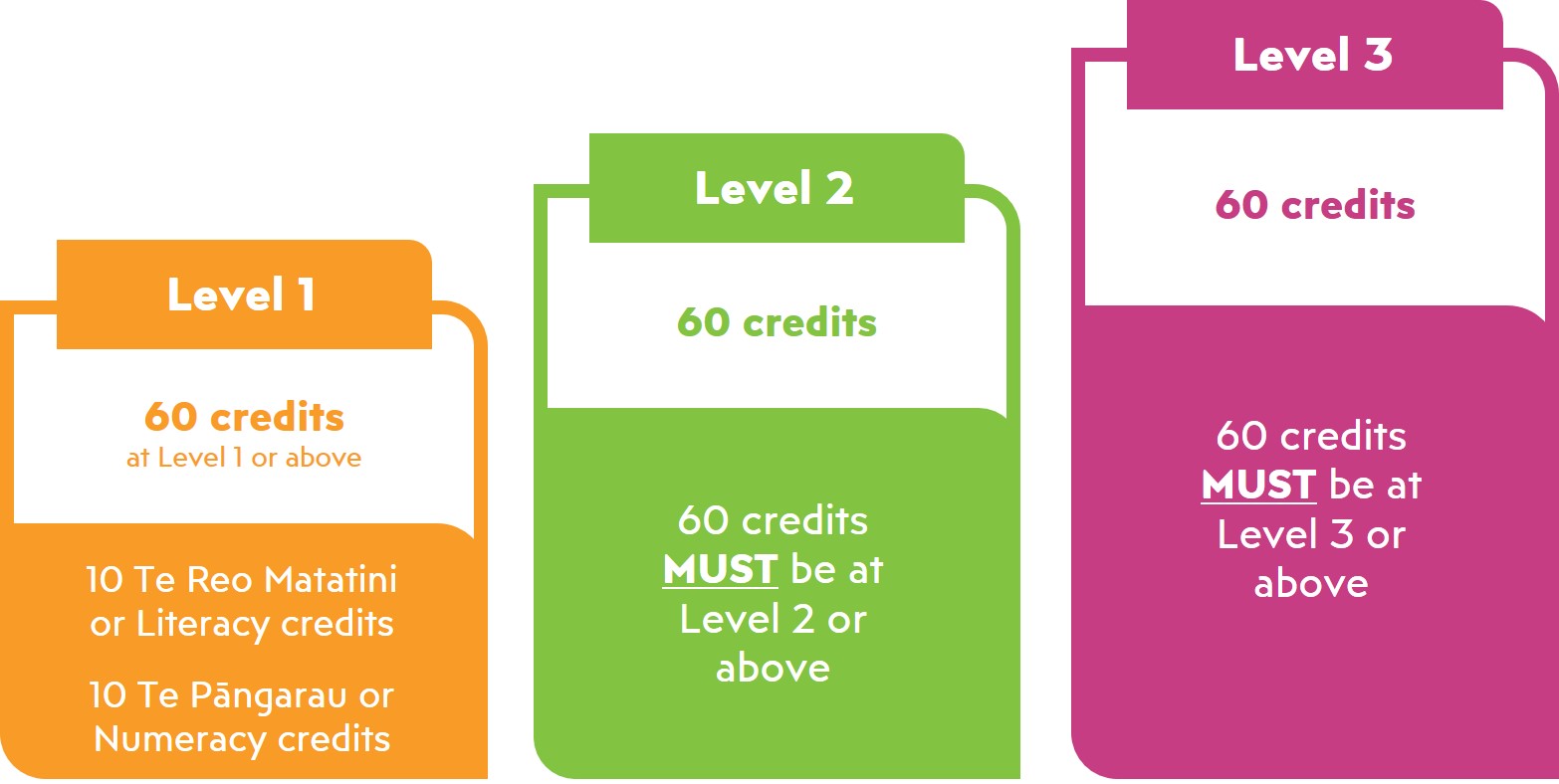About NCEA
NCEA stands for National Certificate of Educational Achievement. It's the main qualification for school leavers in New Zealand.
Every NCEA subject has standards that are worth credits. There are 2 types of standards:
- achievement standards and
- unit standards.
Achievement standards are graded as Not Achieved (N), Achieved (A), Merit (M) or Excellence (E).
Unit standards are mostly graded as N or A.
When you achieve a standard by getting a grade of A, M or E, you earn credits. Credits count toward your NCEA qualifications at Level 1, 2 and 3.
More information
On this page

How many credits do I need?
At each level of NCEA, you need to earn 60 credits at that level or above. For example, at Level 1, you need 60 credits at Level 1 or above.
You also need to achieve a 20-credit Te Reo Matatini me te Pāngarau or Literacy and Numeracy co-requisite.
You only need to achieve the co-requisite once.
More information
Free interactive resources
NCEA to Z
You can learn more about NCEA in the interactive NCEA to Z booklet. It has places for you to write your goals and plans, and tips on choosing subjects that help you them.
NCEA to Z for ākonga [PDF, 3 MB]
NCEA me te Whānau
The NCEA me te Whānau guide helps families understand NCEA, and includes tips on supporting tamariki in high school.
PŪRAU can help rangatahi succeed
PŪRAU (or STEM) subjects can set our rangatahi up for well-paid careers in tomorrow's industries. Ākonga who take PŪRAU subjects in NCEA have more options for future study and training.
Plus PŪRAU is fun!
Imagine coding the next Fortnite, GTA or ROBLOX, working on a medical breakthrough, or designing a bridge with your engineering skills.
Use the links below to find out more about PŪRAU.
More information
Learn more about NCEA and PŪRAU
Whānau, learn more about PŪRAU subjects and get tips for supporting tamariki through NCEA in our free NCEA me te Whānau workshops.
Learn moreHelping tamariki choose what to study
There are so many options for tamariki to study at NCEA. Ākonga can pick subjects that interest them, subjects that challenge them, or subjects that play to their strengths.
It can be hard for ākonga to choose, and hard for whānau to understand all the options and support them.
We've put together some tips to help whānau:

